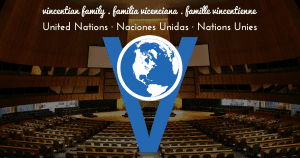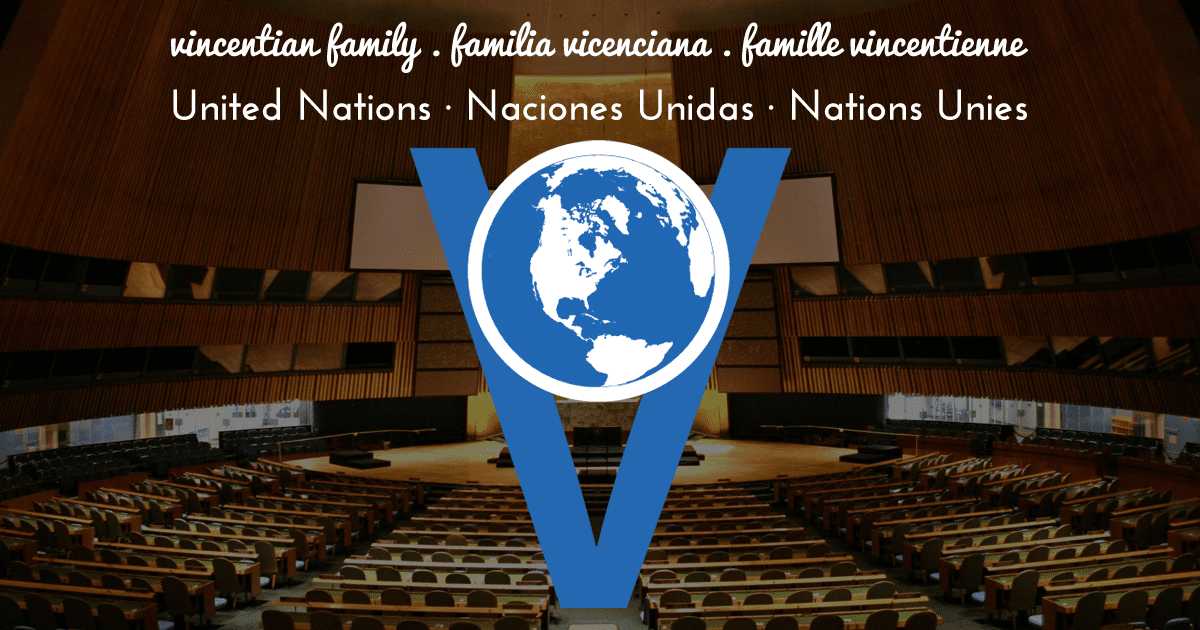Health: Leaving No One Behind
As we look back to the Our Common Agenda piece published by the Secretary General, Antonio Guterrez, we are reminded that in the year 2022, the United Nations is being encouraged to remember that no one should be left behind. As the COVID-19 pandemic and other world events continue to ensue, we as Vincentians must keep asking “What can be done” and identify feasible solutions to take care of the most marginalized communities around us.
From the perspective of health, the world is still in the midst of a public health crisis. While nations like the United States have been successful in obtaining and distributing vaccines and other treatments, other nations and communities have not had access to the same options. As life begins to resemble something more “normal” than the past two years, it is essential that NGOs and the UN do not forget that while COVID precautions may be more relaxed now in some places, the need to continue to work and source vaccines, treatments, and medical supplies is not over.
In addition to the need to continue advocating for equitable access to COVID supplies, we must also consider the health needs of those who are currently living as refugees or are homeless. When people leave their homes, their health needs leave with them, and it is up to the global community to ensure access is available to the care they need, whether this be hospital care, medications, or visits with specialists. The UN and its partners must also continue to work multilaterally to guarantee that through their initiatives, that refugees and the homeless have access to any medical care, COVID-19 precautions, and other health needs they may have.
For example, in light of refugee situations such as the newly started crisis in Ukraine, the health and safety of refugees and migrants need to be taken care of while the political conflict continues on because health needs and emergencies do not wait for violence to end. Recently, there have been several news stories released about Ukrainians with cancer and other conditions seeking out the care they need in countries they have fled to or, on the contrary, being unable to access this care in their home country. Not all of the stories have been positive and refugees have faced inaccessibility of care, but hospitals like St. Jude’s in the United States and Toronto’s Hospital for Sick Children in Canada have started to open their hospitals to care for Ukrainian children with cancer to ensure they can access the care they need.
While not everyone has the ability to provide care to those in need like these hospitals, what we can learn is that many of us can already do things to advocate for the needs of others using the resources we already have access to. As we reflect back to the question of “What Can Be Done,” there are numerous ways to be involved in equitable access to good health and ensure nobody is left behind. This could look like petitioning certain programs to write sections of their programs directly addressing the needs of the homeless or refugees, working with local or international organizations to help locate needed resources, or more simply, talking or posting about the issue with others to raise awareness about the needs that exist. We are living in unprecedented times and perhaps it is time to start thinking outside of the box about how sustainable and impactful change can be made to ensure all have access to the health needs and rights that every human is entitled to, regardless of their location, race, gender, religion, or any other part of their identity.
Grace D. Bagdon, CM intern at the UN

Tags: United Nations







Thanks Grace. Good emphasis on the need for health care for vulnerable populations. CSocD 60 also included this concept in the Resolution E/CN.5/2022/L.3 by reaffirming “the ambition to get back on track to achieve the Sustainable Development Goals by designing and implementing sustainable and inclusive recovery strategies to reduce the risk of and build resilience to future shocks, crises and pandemics, including by strengthening health systems and achieving universal health coverage, Access to health care is integral to an adequate standard of living for all.